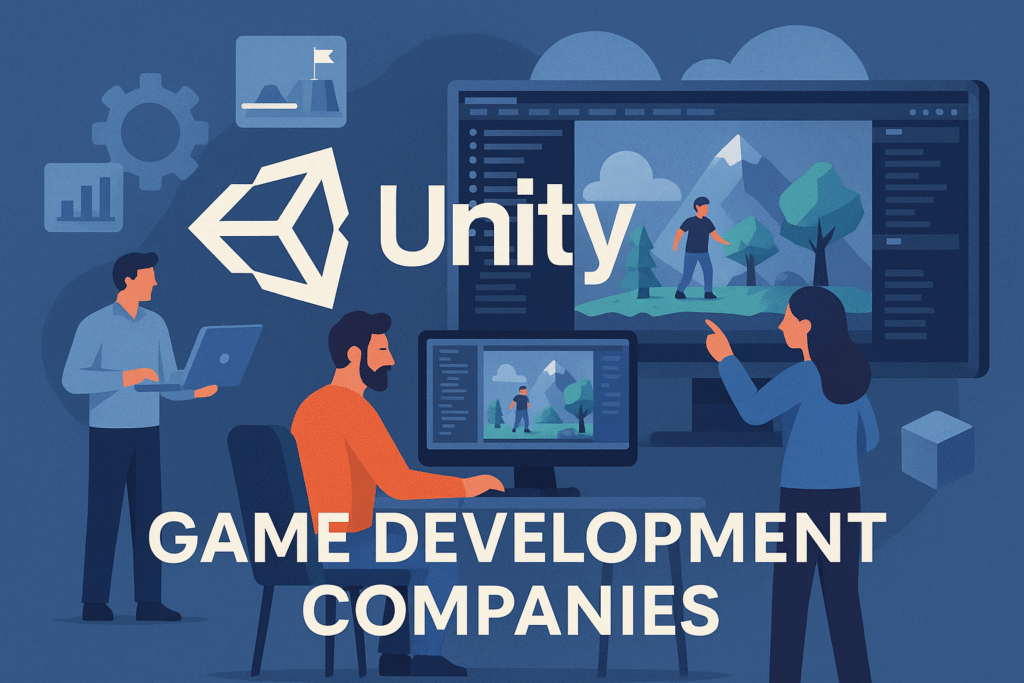Unity Game Development Companies: Building the Future of Interactive Digital Worlds

In the world of modern entertainment, video games are more than just a pastime — they are cultural touchstones, business opportunities, and creative expressions of art and technology. Behind many of today’s most successful games stand unity game development companies, transforming ideas into immersive worlds that captivate millions of players.
The Unity engine has become a cornerstone of game creation because it empowers developers to bring ambitious visions to life across multiple platforms — from mobile phones to consoles and virtual reality headsets. But what exactly makes Unity and the studios that specialize in it so influential?
The Strength of the Unity Engine
Unity has earned its reputation as one of the most flexible and developer-friendly engines available. Its intuitive interface, extensive documentation, and rich asset store enable creators to design, develop, and deploy games quickly without sacrificing quality.
One of Unity’s key advantages is its cross-platform capability. Developers can create a game once and release it seamlessly on iOS, Android, Windows, macOS, and even game consoles like PlayStation and Xbox. This saves time, reduces costs, and ensures a consistent experience for players worldwide.
Unity also supports 2D, 3D, AR, and VR projects, making it the go-to engine not only for entertainment but also for industries like architecture, education, simulation, and healthcare. With such versatility, it’s no wonder that so many unity game development companies rely on this powerful engine to build next-generation products.
Why Businesses Choose Unity Game Development Companies
Partnering with a Unity-focused studio offers numerous benefits, whether for an indie developer, a startup, or an established enterprise. Here are some of the main reasons why Unity specialists are in such high demand:
- Cross-Platform Development: Games created with Unity can run on multiple systems without the need to rebuild from scratch.
- AR and VR Capabilities: Unity leads the way in augmented and virtual reality, enabling rich immersive experiences.
- Scalability: From simple mobile games to large-scale multiplayer titles, Unity’s performance scales effectively.
- Vibrant Community: Millions of developers worldwide contribute to Unity’s ecosystem, providing tutorials, assets, and plugins.
- Fast Prototyping: The Unity Editor allows rapid testing and iteration, helping teams perfect their mechanics and visuals quickly.
For businesses outside the traditional gaming sector, unity game development companies also provide valuable services for interactive marketing, product visualization, and virtual training simulations.
Services Offered by Unity Game Development Companies
These companies often provide complete, end-to-end development solutions that cover every stage of a project’s lifecycle:
- Game Design and Concept Development: From narrative building to gameplay systems, the foundation of a great game begins here.
- Programming and Scripting: Skilled Unity developers handle the technical side — implementing logic, physics, AI, and UI.
- Art and Animation: 2D/3D modeling, texturing, and motion design bring worlds and characters to life.
- AR/VR Development: Building immersive experiences for headsets like Meta Quest, HTC Vive, and HoloLens.
- Testing and QA: Ensuring performance, playability, and optimization across devices.
- Post-Launch Support: Continuous updates, patches, and feature improvements to keep players engaged.
With this full-service approach, Unity developers deliver not just games but long-term products that evolve alongside their communities.
Qualities of a Top Unity Development Partner
Not all Unity studios are the same. The best unity game development companies combine creativity, technical mastery, and business understanding. When choosing a development partner, it’s important to look for:
- Proven Portfolio: A history of successful Unity projects across multiple genres and platforms.
- Strong Communication: Transparent workflows and regular progress updates.
- Creative Vision: Ability to merge storytelling and gameplay into a cohesive experience.
- Technical Expertise: Skilled teams that use Unity’s latest features, such as DOTS (Data-Oriented Technology Stack) and HDRP (High Definition Render Pipeline).
- Long-Term Support: Reliable post-launch assistance to ensure your project remains relevant.
These qualities distinguish professional studios from freelancers or general software companies — and can make or break the success of your game.
Industry Trends Shaping the Future
As technology evolves, unity game development companies continue to adapt and innovate. Some of the most exciting trends shaping the industry include:
- AI and Procedural Generation: Smarter NPCs and automated world-building make games more dynamic and personalized.
- Cloud Gaming: Developers are optimizing Unity titles for streaming platforms, allowing high-quality gameplay without powerful hardware.
- Blockchain Integration: Some Unity developers experiment with play-to-earn mechanics and secure in-game economies.
- Metaverse Projects: Unity is a major tool for building virtual worlds where users can work, play, and socialize.
- Cinematic Storytelling: Advanced rendering pipelines enable film-like visuals within interactive experiences.
These innovations ensure that Unity remains at the cutting edge of game technology — driving new creative possibilities for developers and players alike.
Conclusion
Unity has become far more than just a game engine; it’s a creative ecosystem powering a new generation of digital experiences. The work of unity game development companies bridges imagination and innovation — turning ideas into engaging, interactive realities.
Whether you’re a business seeking to gamify your brand, a studio producing your next big hit, or an entrepreneur exploring the metaverse, Unity provides the tools and talent to make it happen. Partnering with skilled Unity developers ensures not only technical excellence but also a vision aligned with the future of interactive entertainment.

